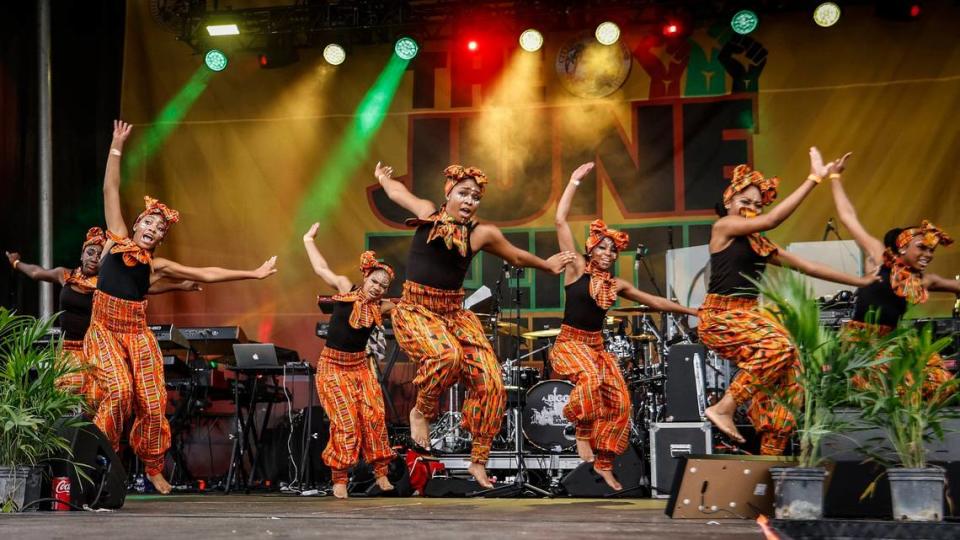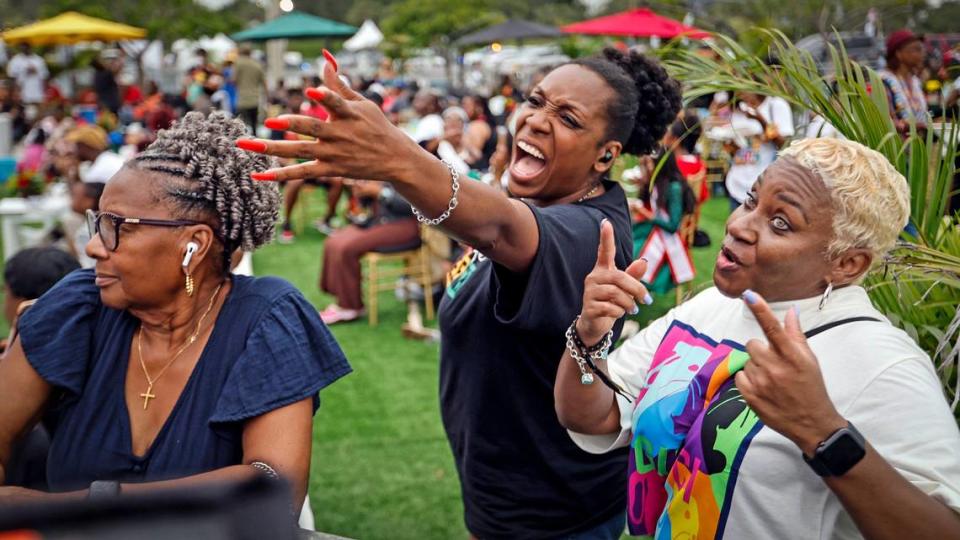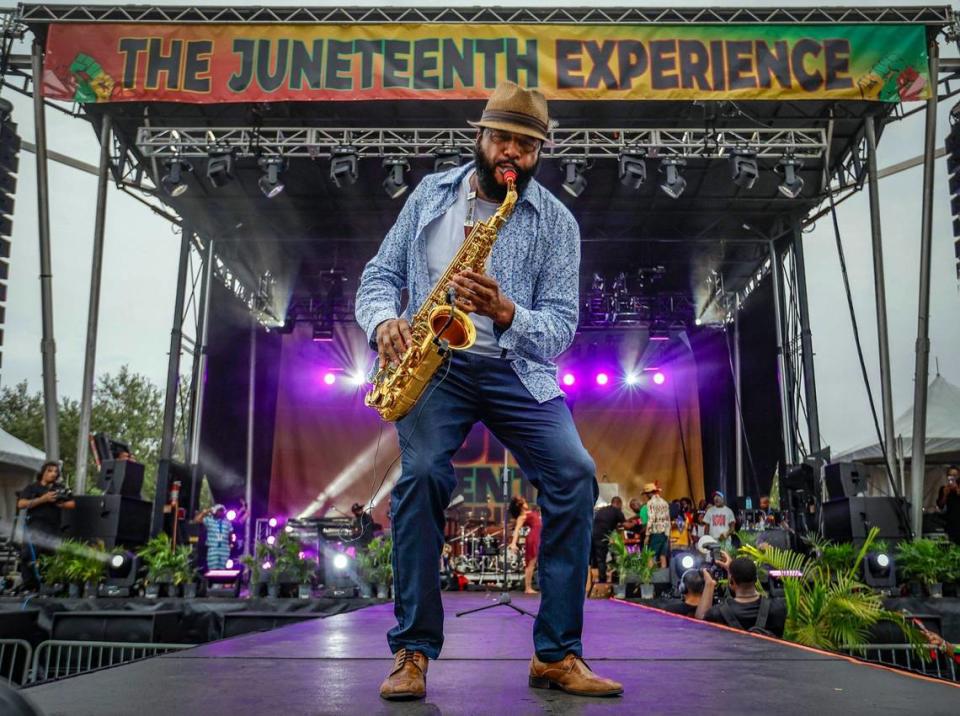How Black Miami professionals see Juneteenth as an opportunity for cultural education
For many Black Americans, Juneteenth is a day to remember their ancestors being freed from slavery and to celebrate the progress that has been made since then.
Juneteenth commemorates the day when the last enslaved people in the U.S. were notified that they were freed on June 19, 1865. The day became a federally recognized holiday in 2021 following nationwide protests and social unrest after the murder of George Floyd by Minneapolis police officers in 2020.
Three Black Miami professionals spoke to the Miami Herald about what Juneteenth means to them and the ways in which they are celebrating it.
Zakiyya White, founder of ZW Eventz
The middle of June means something special to North Miami event planner Zakiyya White. Celebrating Juneteenth means more than planning events for a single day — she’s planned a full week of programming that she hopes will stay with people long after June 19.
White, 32, moved to Miami from Newark, New Jersey, in 2014 and created her Juneteenth events out of necessity, finding there were few in existence. She immersed herself in learning about the history of Black Miami communities like Overtown and Coconut Grove. As she learned more about Black Miami history, she wanted to find ways to attract people to Black-owned restaurants like Red Rooster and historical landmarks like the D.A. Dorsey House. Bringing people to Overtown, a historically segregated neighborhood, has become a personal mission for her.
“Overtown was the gathering spot and one of the only places Black people could congregate after certain hours,” she said. “It’s important to acknowledge that we’re now free to do what we couldn’t do because of segregation laws.”
White said she was disappointed when she learned that boxing legend Muhammad Ali had fought in South Beach but was not allowed to stay there because of Jim Crow-era laws.
“People benefited off of Black culture and our talent, but we weren’t celebrated for that, or only celebrated in certain parameters,” White said. “Now, we have to celebrate ourselves. Juneteenth is a reminder to celebrate ourselves and where we’re going.”
As White spends the week at Juneteenth events throughout Miami, she believes raising awareness about the holiday will allow more people of all backgrounds to celebrate the city’s rich Black history.
“It’s about promoting cultural growth,” she said. “It’s there, and we have to shine a light on it.”
Teri Williams, COO of OneUnited Bank
Teri Williams, the COO of the Black-owned OneUnited Bank, remembers being a girl in Indiantown, Florida, when she celebrated Juneteenth for the first time in the 1960s. Black people and white people were separated by train tracks in Indiantown at the time, but the Juneteenth celebrations were always joyful affairs for the town’s Black residents.
“We used to have a barbecue on Juneteenth, and I don’t think we could have imagined it being a national holiday,” said Williams. “It was sort of like a celebration within the Black community that only we knew about. To some degree, it sort of felt like it was ours.”
OneUnited has celebrated Juneteenth by providing financial literacy programming, something that has long been important to Williams. As a child, she developed an appreciation for Black business from her grandmother Annie Coachman, known by community members as “Ma Honey.” Coachman owned multiple businesses in Indiantown, including a penny candy store, a barbecue pit and several rental properties. Walking around with Ma Honey to collect rent from tenants taught Williams the importance of financial independence for the Black community.
Today, Williams is hopeful that Juneteenth can serve as another reminder of the need for financial literacy and advocacy for businesses in the Black community.
“We are finally recognizing the importance of financial literacy and of Black businesses and how closing the racial wealth gap can be accomplished if we focus on those two things,” she said. “Making Juneteenth a federal holiday was really a tipping point for us as a country to say, yes, these things are important.”
Shareef Nash, partner at PS Social
As a partner in the social media agency PS Social, Shareef Nash worked with the city of Miami Gardens to produce this past Saturday’s Juneteenth Park-In & Party at Hard Rock Stadium. Like White, Nash also moved to Miami from Newark, New Jersey, and arrived in 2016 to join his business partner, Al Pierson.
Nash, 45, wanted to make sure Saturday’s all-day event balanced education on Juneteenth’s history and participation from Black-owned small businesses with entertainment, including a performance from R&B legend Stephanie Mills.
“We’re highlighting community activists and kids,” he said. “It’s not a day where we just come out and listen to music.”
Nash said that he believes Gov. Ron DeSantis’ efforts to diminish Black history in Florida schools make his work that much more important.
“DeSantis is doing things to remove our history from schools,” he said. “We have to make sure other folks understand the value we bring to the table. We should continue to educate, listen to our songs, tell our stories and share our recipes.”



